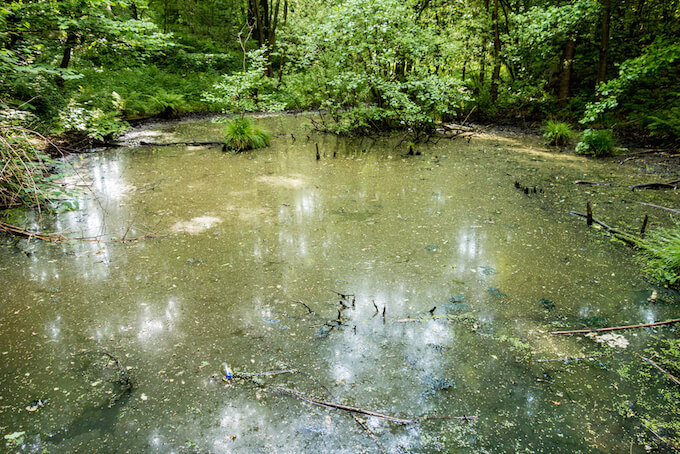SEDIMENT BUILD-UP
Terrapin Aquatics ManagementUp to your knees in MUCK?…We can get to the bottom of that! Using beneficial (healthy) bacteria can greatly help with the reduction of organic sediment (muck).
A pond begins to age as soon as it is dug or developed. The decomposition of algae and other aquatic plants makes nutrients readily available for the re-growth of new algae or other aquatic plants. Over time organic sediment build-up (muck) can negatively affect the health and longevity of your aquatic ecosystem. Using beneficial (healthy) bacteria can greatly help with the reduction of organic sediment (muck). Beneficial bacteria bind to excess nutrients making them unavailable and reducing algae growth. Adding beneficial bacteria into your scheduled lake or pond maintenance is effective for reducing years of dead plants, leaves, grass, and algae that have accumulated in the form of organic sediment at the bottom of your pond. Terrapin Aquatics’ will design a program limiting the nutrients available for algae growth, reducing organic sediment build-up, and improving the overall clarity and water quality of your body of water.
Helpful tips and best management practices for less sediment accumulation:
- do not allow grass clippings to fall into pond
- do not rake leaves into pond
- do not allow dead emergent weeds to fall in or near ponds edge, this will add to nutrient and sediment accumulation in the body of water



